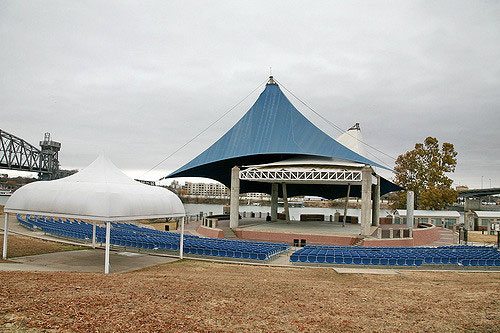
July 18, 2017; KTHV (Little Rock, AR)
Riverfest, a Little Rock nonprofit, recently announced its decision to suspend the eponymous music festival it’s held for 40 years. The organization’s executive director, DeAnna Korte, said in a press release, “Rising costs of performers’ fees, coupled with a greater number of competing festivals around the country are the underlying factors leading to the decision.” Board member Cheddy Wigginton added, “We had a great economic impact upon Little Rock and Arkansas.”
The three-day festival was held annually on the banks of the Arkansas River and was purportedly the largest single event in the state of Arkansas, with more than 250,000 attendees at its peak. Its annual economic impact was estimated to be about $33 million for the community, with $55,000 annually in grants according to recent 990s. The grants were typically $50,000 to the City of Little Rock and $5,000 to the Junior League of Little Rock, one of the founders of the festival. For an event that cost $2 million to run, that’s a pretty good return on investment, despite what may appear to be a small amount of cash given directly back to the community. But most of the money does appear to go directly to Riverfest costs, with a shoestring staff and hundreds of volunteers.
Sign up for our free newsletters
Subscribe to NPQ's newsletters to have our top stories delivered directly to your inbox.
By signing up, you agree to our privacy policy and terms of use, and to receive messages from NPQ and our partners.
Riverfest shouldn’t feel alone, however, as other festivals throughout the country have closed as well, including BayFest in Mobile, Alabama; Gathering of the Vibes in Connecticut; and Karoondinha in Pennsylvania, just to name a few.
Over the years, Riverfest tried to adapt to changing market trends and demographics. One of those changes in 2016, much to the chagrin of some local residents, was the date of the festival, moving it from Memorial Day weekend to the first weekend in June. But like any nonprofit organization that puts on any kind of event knows, one can’t make everyone happy. And despite raising record sponsorships this year, with weather and competing festivals a factor, attendee and vendor sales weren’t optimal for the festival, according to Korte.
Apparently, after a significant loss in 2015, the Riverfest board and staff realized the rising price of tickets was excluding the family demographic. The organization ended up creating a separate festival, Springfest, as a free family-focused event to counterbalance Riverfest. It’s unknown if that festival will continue, and keeping the organization’s mission—to produce a recreational, cultural, and educational family-oriented celebration of the visual and performing arts for the benefit of the community—in mind, nonprofit experts might wonder if it can’t redirect its focus to that.—Angie Wierzbicki











